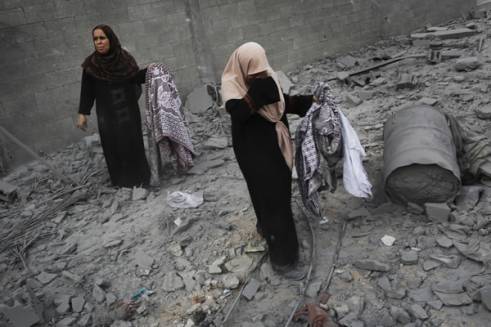By Sarah Marzouk
HelpAge International is preparing to respond to the humanitarian situation in Gaza. As soon as the situation allows, we will address the immediate health and practical needs of older people affected, especially those living alone or unable to reach services.
We plan to ensure older people are referred to services provided by others, where appropriate and work with all other agencies responding in Gaza to ensure they include older people in their programmes.
Difficult to reach those affected
However, while hostilities continue, it is extremely difficult for HelpAge International and other humanitarian aid providers to reach vulnerable people. Our office in Gaza is currently closed and many of our staff have left their homes in fear of their safety.
Despite this, we have been able to recruit volunteers to help with distributions once they are possible.
We are also in the process of procuring and packing hygiene kits – which include soap, toilet paper, adult diapers, toothbrushes and toothpaste – ready for distribution and are planning needs assessments to ascertain older people’s most urgent needs.
How older people are affected
Older people in conflict situations face particular problems such as isolation, lack of mobility and reduced physical strength which make it difficult for them to escape the fighting and access humanitarian aid.
7% of older people in Gaza live alone (or 8,000 people), away from the family and social support networks on which they often rely to meet their basic needs. 25% of older men and 19% of older women suffer from a disability or have trouble moving.
Many of the 110,000 people over 50 living in Gaza are likely to have been affected in this way.
Older people living with chronic health conditions such as diabetes are likely to be unable to access critical drugs which have not been getting through as a result of the fighting. Indeed, 63% of people aged 60 and over in the Gaza Strip suffer from one or more non-communicable diseases.
Many households containing or headed by older people have lost their source of income while the conflict continues.
This BBC news report shows how older people in Gaza are particularly vulnerable.
Our emergency response
As soon as work is possible again, we will put into action our emergency response plan. The plan will support at least 1,400 families headed by older people in Gaza.
The intervention will focus on food security, shelter, health, water, psychosocial assistance, protection and advocacy.
Activities include:
- Rapid needs assessments for older people affected in the areas of Gaza where we work, to identify their most urgent needs. Based on the assessments, we will distribute mobility aids and hygiene kits that include adult diapers.
- Working with others on the ground to secure 1,400 shelter kits specifically for displaced older people and their families, which will include blankets, clothes and cooking utensils.
- Coordinating with the Ministry of Health to refer older patients to the services they need.
- Working with the food sector and UNRWA (UN Relief and Works Agency for Palestine Refugees in the near East) to secure the distribution of food baskets for two weeks to at least 1,400 older people who are displaced. We will also secure special food baskets for 500 older people, in addition to those already being supplied to the general population by the World Food Programme.
- Working through our affiliate El Wedad, to provide psychosocial support for older people affected by the on-going crisis.
